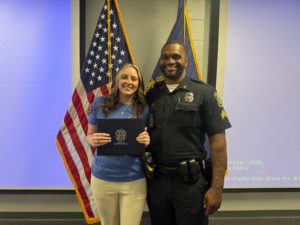By Sheila Rentfrow, Kentucky Kinship Resource Center Program Coordinator
For many children, living with a relative or someone close to them, instead of their mother or father, is not unusual. Getting off the bus from school at grandma’s house instead of their parent’s house is just what they do everyday. Answering questions from friends and school mates about where their mom or dad is, or why they live with their aunt or uncle can be a difficult question for children to maneuver. Whether they know the reason why they live with a relative or family friend, they do know that they are with family, and they are loved and cared for.
Across the nation, nearly 2.7 million young people are being raised by a relative. This care arrangement, referred to as kinship care, is necessary when parents are unable to safely care for children in their home. It is estimated that Kentucky has one of the highest rates of kinship care in the country. Kinship care also includes fictive kin care, which is a child being cared for by a close family friend
For these families, their situation is often necessitated by difficult and challenging circumstances. From abuse and neglect, to parental substance use, incarceration or death, children in these situations are left in need of a home where they can experience the love and care that every child requires.
Research into kinship care overwhelmingly suggests that children raised in a kinship family experience many benefits including the preservation of family culture and increased feelings of belonging and community. In addition, kinship care leads to reduced trauma, improved overall well-being, better mental health and behavioral outcomes, and higher placement stability and improved permanency (Kinship Care is Better for Children and Families, Heidi Redlich Epstein; Factsheet: Children Thrive in Grandfamilies, Generations United).
But, as rewarding as it is for children, kinship care often poses many challenges for caregivers. Because caregivers often have to step in as caretakers in emergency family situations, often with little advanced notice, they don’t have time to prepare financially, emotionally, and even physically. For many caregivers, concerns of financial stress in caring for their expanded family, personal health conditions, family relationships, and other concerns can become paramount for these caregivers. In addition to these concerns, these caregivers must learn to navigate child welfare systems and identify and utilize critical supports to care for their kinship children.
However, given these and many other challenges, these caregivers step forward without a moment’s notice, without hesitation, because these children are family, as in the case of fictive kin caregivers, are like family. They not only step in, but they stay in, committing for the next several years in spite of the challenges, to ensure that child grows up in a happy home, surrounded by family and people who love them.
That’s the part that never ceases to amaze me. After speaking with countless caregivers and hearing the challenges they are facing, the worries they have, the frustrations they experience, I also hear the love, the care, and the determination to make sure that child knows they are loved and cared for — despite the past situations that led them there.
Growing up very close to my grandparents, I learned firsthand the love that comes from family. It really is no surprise to me, reading the research regarding the benefits of kinship care or how important it is to maintain kinship connections. For me, my grandparents provided a solid foundation that enabled me to have a full life. The greatest gift we can give children is the sense of belonging, connection, value, and love. I am forever grateful to my grandparents and my parents that they provided these for me.
Moving forward now means empowering kinship families, helping them navigate systems, and helping caregivers build personal confidence in their ability to care for the children in their lives. Equipping Kentucky’s grandparents, aunts and uncles, cousins, siblings, family friends, coaches, neighbors, and the litany of various types of caregivers stepping in and stepping up for their kids has to become our focus and our mission.
The Kentucky Kinship Resource Center (KKRC) was designed for just this mission. The KKRC provides a continuum of services to meet the unique needs of kinship providers across the Commonwealth, including one-on-one peer support, support groups, and online webinars and trainings. Recently, the KKRC expanded and will now serve all caregivers, whether they have custody, are fostering, or are caretaking for a family member or friend’s child.
Creating a safe, supportive community for kinship caregivers, where they can experience support, find resources, and gain knowledge is one of the main goals at the KKRC and with the expansion, the foster care side of the kinship population will be integrated into the program, allowing for more resource sharing and community building. For more information on the KKRC and its programs, please visit the KKRC website.






